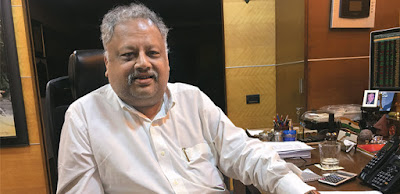“I am not answerable to anything or anyone, there’s no family pressure. Though I did put aside some money for old age, I know that I have my skills to fall back on if things go south financially," she says, adding that being single helped her take the step.
Anjaly Thomas retired at the age of 40 from a full-time job in Dubai to pursue her interests. The idea of early retirement had been with her since she was in college in Mangaluru, which is why she quit the content producer role two years ago. Since then, she has been travelling and writing, and earning enough to survive.
“I am not answerable to anything or anyone, there’s no family pressure. Though I did put aside some money for old age, I know that I have my skills to fall back on if things go south financially," she says, adding that being single helped her take the step.
The reason most people take up a steady job is because they have bills to pay and responsibilities to fulfil. A regular salary offers security to sustain a certain lifestyle. For many, it adds a sense of purpose. But there are those who feel constricted by the 9-to-6 job and dream of retiring early. A few, with ample family support and enough savings in the bank, actually take the plunge.
“Early retirement, that is before 65, is a choice, where you decide that you no longer want to be part of the conventional workforce," explains Natasha Kate, consultant psychiatrist at Mumbai’s Masina Hospital.
In her profession, she has seen people consciously deciding to retire early from a high pressure corporate lifestyle to pursue a healthier, more balanced one. She cites an example of a 47-year-old patient who was obese, diabetic and a chain-smoker. He couldn’t follow his doctor’s advice because of constant stress and long working hours. He retired “even though his company offered him a promotion" she says, and then learnt new skills, and is now a pet psychologist.
In a way, most early retirees do not seek full retirement, “they seek taking a break from work for sometime, working fewer hours for a better work-life balance, or finding an alternative career," says C.S. Sudheer, chief executive and founder of IndianMoney.com, a financial literary platform. He receives requests from two categories of early retirees—people in high-stress professions, like investment banking, engineering or IT, who want to pursue a healthier lifestyle, and those who retire because of the profession they are in, like pilots, merchant navy officers or professional sportspersons, has a “sell-by date".
Isha Chauhan, 32, falls in the latter category. Ever since she joined the Indian Air Force (IAF) as an aeronautical engineer she knew the career came with a retirement date. Last year, she opted for voluntary retirement and decided to pursue an MBA.
“Never regret. It’s okay to be out of your comfort zone, and try something new," says Chauhan. There’s no stress, she insists, as she has seen both her parents retire early and do something they really liked.
Be ready for the first year
Leaving a conventional long-term career can be hard. An unexpected fallout of early retirement for Ranjan Pal, who quit his investment banker career at the age of 45 in 2004, was that he missed being a corporate honcho.
“Giving up power and position is big. You lose out on the perks of your office, the prestige you are used to, colleagues stop calling you every other day or their behaviour changes and there is no structure to your daily routine," says Pal, now 61 and a travel writer. That’s the reason, he says, most of his colleagues and friends who want to retire early don’t.
Early retirement can be extremely liberating, but if done for the wrong reasons could result in anxiety, regret and jealousy. “It is important to know for yourself why you want to retire early. Is there something else that you want to pursue, or do you hate your job? If it’s the latter than look for a job role or company change," says Kate. She adds that some of her patients, especially men, have been ridiculed by family members and colleagues, and called “weak" for quitting high-pressure jobs.
Find your ’SOMETHING’
Starting out in any profession is hard, but once you’re over the initial bump, the rewards can be many. The same can’t be said about life post early retirement.
When 33-year-old Aakshat Sinha put a stop to his high-flying but hectic engineering career, he felt his life had become filled with “complete inaction". For days he would sit on the sofa and browse Internet or watch television as he could not decide what to do with his life. His wife, a doctor, was worried, as were his parents. “Though family can support you, no one can help you figure out your dreams," says Delhi-based Sinha, now 46.
It took Sinha a year of experimenting to realize that he wanted to be an artist. Once he moved in that direction, he dug into his savings and started working towards his “true calling".
“I have painted dustbins, wall murals, street art, graffiti, farmhouse walls, curated solo and group shows, wrote poems, short stories and created comics," says Sinha. Before retirement, Sinha says, he had a career and a good salary, but after he has a life full of experiences and enough money to survive.
Like Sinha, Madhu Raghavendra, 33, gave up a corporate job to pursue his “real dream". “I gave up my plush job to curate poetry and art events. My parents were shocked and people thought I was insane," he says.
The going hasn’t been easy, admits Raghavendra. He has had to give up the “comforts of consumerism", but he’s not complaining. “There is no denying that it’s a harsh world out there and everyone has bills to pay, but if you know of a passion that you want to pursue, you need to quit that job."
Talking money
There is no single answer to how to survive financially, what to do with your time and how to handle pressure from the family and society. If you have planned your finances early on, the pressure of day-to-day living and bills reduces considerably.
“Financial security is essential and takes the stress out. Make sure you have enough to finance the lifestyle of your family, to support them and an income stream to sustain you," says Pal. His family already owned a house, and he had saved enough for his children’s education and daily living, which played a big role in making his early retirement stress free.
The first step in planning early retirement is to find how much total wealth you will need to retire. Once you know the corpus, you can head to any online retirement calculator, offered by banks and investment platforms, to zero in on a monthly sum you need to save to build this corpus, says Sudheer.
Figure out your risk appetite and diversify investment every month in equity, equity-linked mutual funds and the safer employees’ provident fund, public provident fund, fixed deposits, debt funds and annuity plans. “Live a frugal life, repay all loans, create a contingency fund for emergencies, get life and health insurance and invest regularly," he says.
Harsh Jain, co-founder of online investment platform Groww, suggests, “Add all bonuses, invest in instruments that beat inflation, and plan your taxes." The earlier you start doing this in your career, the earlier you can retire, he says.
Unlike the idea of retirement when you’re in the age group of 60-65, early retirement is aspirational, a privilege to be free and enjoy a balanced lifestyle and live your dream. “Early retirement doesn’t necessarily mean quitting work completely. It just means being secure about your finances so you can lead life the way you want to," says Sudheer.
Source :https://www.moneycontrol .com/news/ business/ personal-finance/ retirement-in-40s-how-to-manage-money-and-survive-financially-4384141.html
Investment & trading in securities market is
always subjected to market risks, past performance is not a guarantee of future
performance. Moneyplant Research SEBI Registration Number: INA000007924









